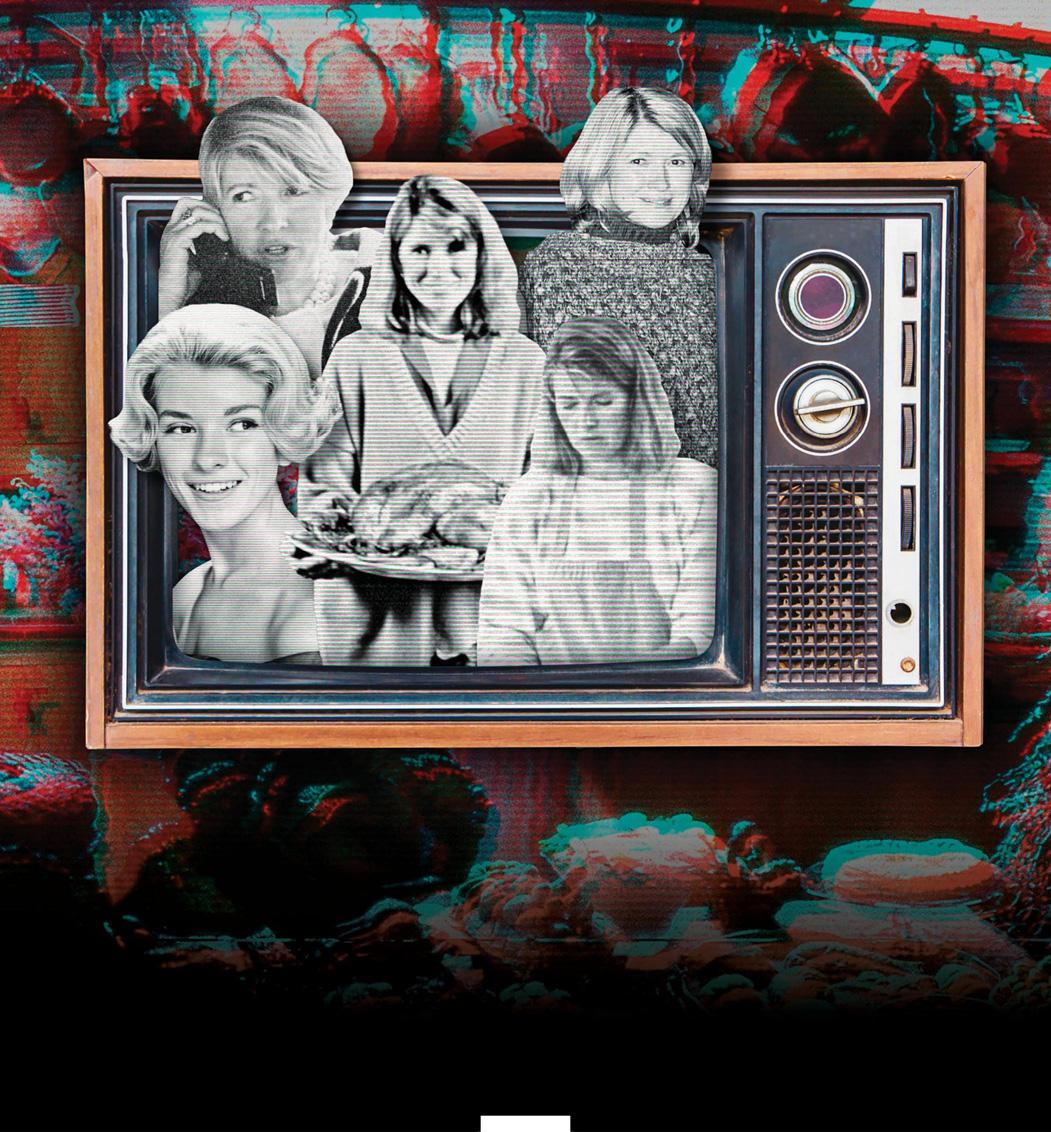Prøve GULL - Gratis
RECONSIDERING MARTHA
Time
|November 11, 2024
Anew Netflix documentary assays how Martha Stewart has made us feel across a five-decade career

LONG BEFORE INSTAGRAM AND TIKTOK EXISTED as places for us to stoke our insecurities, there was Martha Stewart. Martha, circa 1995, smiling from the pages of her namesake magazine as she put the finishing touches on a Versailles- worthy pastel cake. Martha, again in the mid-1990s, ably demonstrating the only proper way to prune an unruly tree. Martha, in early 2004, the picture of quiet luxury in her downy, twigcolored woolens as she strode into the Manhattan federal courthouse during her trial on nine criminal counts associated with the ImClone insider- trading scandal. You could love her, you could hate her, you could love to hate her or vice versa. Her mission, it seemed, was twofold: to teach you how to do seemingly unachievable things around the home, and to make you feel inadequate.
But if Martha Stewart gave many of us our first taste of feeling terrifically ill-suited to any domestic task or even just to basic living, she also inadvertently reminded us that when it comes to nurturing self- confidence, we’re our own worst enemies. Her confidence and drive for perfection made us feel bad; we decided our hurt feelings were her fault. But now—when our social media feeds are filled with beautiful people doing remarkable things that most of us will never be able to pull off, or afford—it’s time to reconsider the rise, fall, and rise of Martha Stewart. The degree to which she both inspired and angered so many of us is still something to reckon with. As Eleanor Roosevelt said, “No one can make you feel inferior without your consent.”
 If you still need convincing that Martha Stewart is a human being much like the rest of us—albeit one who can cook a turkey inside a puff pastry without once bursting into tears—R.J. Cutler’s documentary
If you still need convincing that Martha Stewart is a human being much like the rest of us—albeit one who can cook a turkey inside a puff pastry without once bursting into tears—R.J. Cutler’s documentary Denne historien er fra November 11, 2024-utgaven av Time.
Abonner på Magzter GOLD for å få tilgang til tusenvis av kuraterte premiumhistorier og over 9000 magasiner og aviser.
Allerede abonnent? Logg på
FLERE HISTORIER FRA Time

Time
CO₂ Leadership Report
THE ENVIRONMENTAL PROTECTION Agency's Feb. 12 repeal of its “endangerment finding”—which underpins all of its noteworthy climate rules—was framed by the Trump Administration as a big win for American industry.
1 mins
March 09, 2026

Time
Sentencing of Hong Kong publisher raises fears in Taiwan
WHEN A HONG KONG COURT HANDED media tycoon and pro-democracy leader Jimmy Lai a 20-year jail term on national-security grounds on Feb. 9, his son called it a “death sentence” given Lai’s age, 78, and deteriorating health. Others saw the same bleak implications for freedoms in Hong Kong—and a glimpse into what could be in store for others Beijing views as troublesome.
1 min
March 09, 2026

Time
James Van Der Beek
James Van Der Beek, best known for playing Dawson Leery in the '90s teen drama Dawson's Creek, \"passed peacefully,\" his family said, on Feb. 11 at age 48, after a battle with colorectal cancer.
1 min
March 09, 2026

Time
Love Story tries too hard to be The Crown for America
IF THE KENNEDYS ARE THE CLOSEST THING AMERICA has to a royal family, then Carolyn Bessette Kennedy was our Princess Diana. Like her British counterpart, she was an outsider—albeit a beautiful, stylish, blond, privileged one—to the palace intrigue that consumed the family she married into. She was stalked by paparazzi and alternately worshipped and vilified. And then she died, in her mid-30s, in a horrible accident, only to have her legacy dissected for decades to come. We never let either woman rest in peace.
2 mins
March 09, 2026

Time
VARIATIONS ON A THEME
A new Wuthering Heights adaptation joins a rich history of cinematic reimaginings
5 mins
March 09, 2026

Time
Why you should warm up your feet before bed
GETTING COLD FEET IS INCONVE-nient in many situations—including when you go to bed.
2 mins
March 09, 2026
Time
In the Loop
For 15 years, Dex Hunter-Torricke worked near the pinnacle of the tech industry.
1 min
March 09, 2026

Time
The People VS. AI
THE GRASSROOTS BIPARTISAN MOVEMENT TO REIN IN AN INDUSTRY
15 mins
March 09, 2026

Time
16 LEADERS WORKING TOWARD A BETTER, MORE EQUITABLE WORLD
TEYANA TAYLOR IS BALANCING A WORKLOAD that borders on ridiculous.
28 mins
March 09, 2026

Time
Breezy Johnson The U.S. skier on winning Olympic gold, that mountain marriage proposal, and Lindsey Vonn's example
After your super-G race on Feb. 12, your boyfriend Connor Watkins proposed at the bottom of the slope.
2 mins
March 09, 2026
Listen
Translate
Change font size

